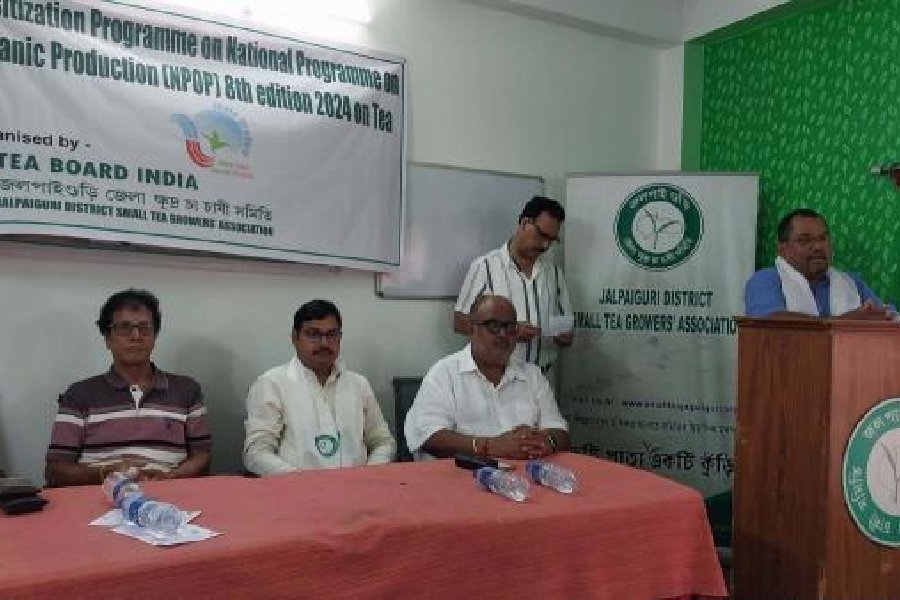The Tea Board of India organised a sensitisation programme in Jalpaiguri on Wednesday to encourage small growers to cultivate organic tea, which has high demand overseas.
According to Tea Board officials, some countries which import tea from India want to buy organic tea which is free of fertilisers and chemicals.
“Some European countries, along with nations like Australia and Taiwan, have expressed interest in buying organic tea from India. We want to increase the organic tea production in our country to secure the overseas markets. That is why we conducted the programme today (on Wednesday), where small tea growers based in Jalpaiguri were apprised of the cultivation process of organic tea and other formalities they need to carry out to get their produce certified as organic tea,” said Anirban Majumdar, a research officer in the Tea Board.
The workshop was held under the national programme on organic tea production.
In Bengal, organic tea is produced only on 87 tea estates in the Darjeeling hills. The Darjeeling Tea, which has a geographical indication (GI) tag, fetches high prices at overseas markets.
However, the total production of Darjeeling Tea is around eight million kilos these days, which is a meagre proportion of the total tea manufactured in north Bengal. Over 300 million kilos of tea are produced annually in the region.
The small tea sector, which contributes around 65 per cent of the brew produced in Bengal, manufactures the CTC tea, which is not organic. It is mostly sold in domestic markets, and a portion is exported to some countries in West Asia where people consume CTC tea.
“Some small growers cultivate organic tea on their own. But their number is too small compared to the total number of small growers (around 50,000) in north Bengal. We appreciate the Tea Board’s initiative to encourage cultivation of organic tea as it would provide us with a wider market. The growers’ earnings will increase as organic tea is sold at higher prices,” said Bijoygopal Chakrborty, the general secretary of the Jalpaiguri District Small Tea Growers Association.
Officials of the Tea Board said workshops on organic tea production would be held in Darjeeling, Kalimpong and North Dinajpur districts.
“It would take around three years to have the first lot of organic tea ready for harvest. Organic tea cultivators will have to take certificates from specialised authorities and agencies to prove the genuineness of the produce. Today, we explained these issues to the growers,” said Nipun Barman, an official of the Tea Board in Jalpaiguri.










